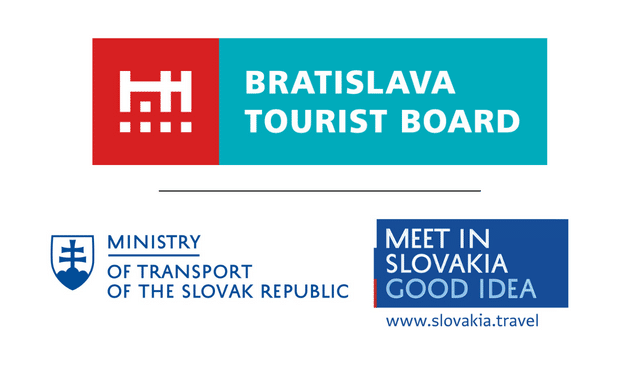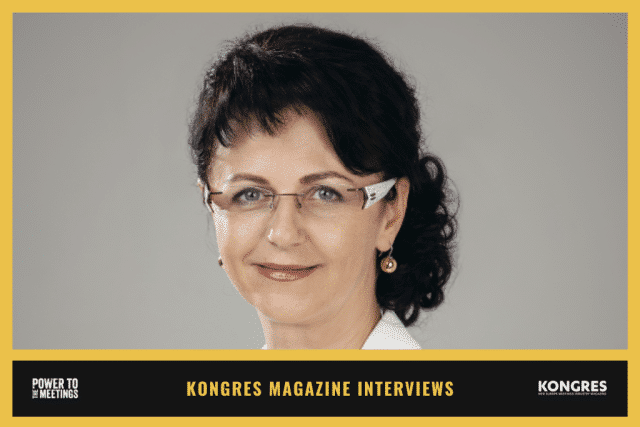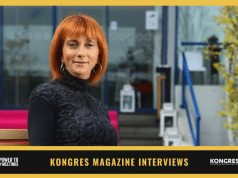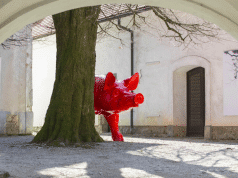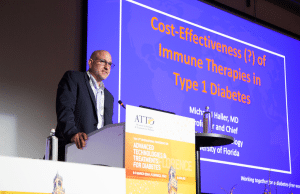Q1: Could you tell us about the recent Smart Life Summit 2023, which took place in Bratislava?
Certainly. The Smart Life Summit 2023 (10th edition of the summit), held in Bratislava under the patronage of the President of the Slovak Republic, Mrs. Zuzana Čaputová, was a significant event where participants delved into the future of innovation and gained valuable insights to enhance their smart living experiences. The summit was organised by the European Alliance for Innovation (EAI), a global professional society dedicated to driving advancements in research and innovation in collaboration with Comenius University Bratislava, Faculty of Management. Other partners from the academic environment included the Technical University of Košice, the University of Žilina, and Alexander Dubček University in Trenčín.
Q2: What was the main reason you organised the Smart Life Summit 2023 in Bratislava, and what was the target audience? How many participants joined the event?
The decision to organise the Smart Life Summit 2023 (summit) in Bratislava was motivated by a combination of factors aimed at fostering collaboration and innovation alongside showcasing Slovakia’s rich cultural and intellectual landscape. Bratislava, with its unique blend of historical charm and contemporary dynamism, provided an ideal backdrop for participants to immerse themselves in an atmosphere conducive to creative thinking. That not only adds an extra layer of inspiration but also helps in building a deeper understanding and appreciation for the cultural context within which these collaborative efforts take place. To summarise, the choice of Bratislava as the host city was strategic, aiming to harness the unique blend of tradition and innovation to inspire participants and propel the Smart Life Summit towards new horizons.
One primary objective was to create a platform for networking among individuals from academia, industry, governmental representatives, ambassadors, and civil society (quadruple helix). By bringing together diverse stakeholders, the summit aimed to serve as a nexus for interdisciplinary discussions and facilitate meaningful connections and collaborations that transcend traditional boundaries. Another crucial aspect was to stimulate the generation of new project ideas. By convening experts and professionals from various fields, it sought to inspire interdisciplinary discussions and catalyse the formation of innovative projects.
It can be stated that the summit provided a dynamic environment where ideas could be exchanged, refined, and developed into actionable initiatives that contribute to the advancement of research and innovation.
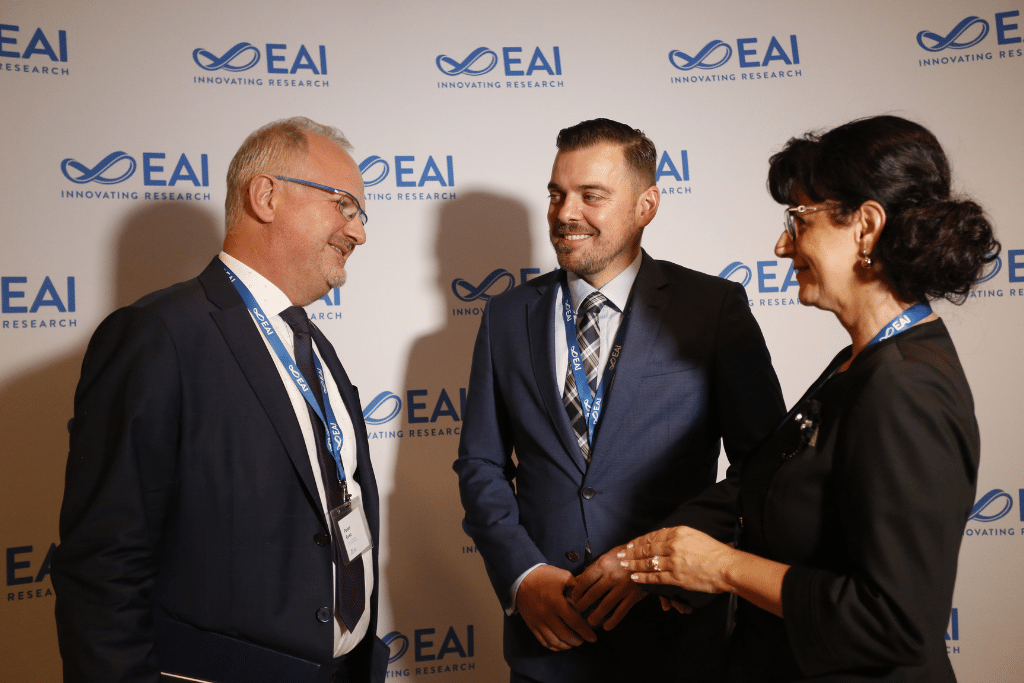
Q3: As the General Chairwoman of Smart Life Summit 2023 and co-founder of the European Alliance for Innovation in Slovakia (EAI SK), could you elaborate on the mission and goals of EAI SK?
Absolutely. The European Alliance for Innovation is committed to advancing research and innovation globally. The mission is to create conducive research environments and transform the best ideas into valuable innovations through collaborative communities. It strives to ensure that researchers receive timely recognition for their contributions, fostering a culture of continuous progress and development.
Q4: How did you structure the programme to make it valuable to participants? Which were the innovative formats that engaged participants?
The structure of the Smart Life Summit 2023 program was carefully designed to provide value to participants on both professional and personal levels, embracing innovation and interactive formats. The emphasis was not only on the quantity of participants but, more importantly, on the quality of interactions.
The summit program was strategically created to achieve several key objectives: Sharing Knowledge and Insights; Creating a Collaborative Platform; Innovative Formats and Exceptional Speakers; and a PhD Student Competition.
Notably, the summit hosted renowned speakers such as Harold Furchtgott-Roth, former commissioner of the United States House of Representatives Committee on Trade, Pieter Van Gorp, a visionary in digital health, and Sanjay Goel, Research Director at the State Center for Innovation in Forensic Sciences in New York, among others. All the prominent and motivational speakers can be found on the official website of the summit: https://smartlifesummit.org.
Moreover, I would like to focus as part of the Mobility IoT and SC conference, the following speakers and panellists delivered keynotes or participated in inspirative panel discussions:
- Dr.h.c. Prof. Ing. Michal Cehlár, PhD.: Dean of FBERG TUKE
- Prof. Ing. Jozef Ristvej, PhD.: Vice-Rector at UNIZA
- Doc. Ing. Michal Greguš, PhD.: Former Vice-Rector at UK in the IT field
- Prof. Miko You: Yuan Ze University, Taiwan
- Prof. Predrag Nikolic: USA
Representatives from embassies:
- H.E. David Nan Yang Lee: Taipei Representative Office in Slovakia
- H.E. Eitan Levon: Israeli Embassy
Panelists:
- Ing. Ivan Mikloš: Advisor to the President for Economic Policy
- Ing. Peter Švec: Deputy Minister of Economy of the Slovak Republic
- JUDr. Peter Bročka, LL.M: Mayor of Trnava city
Representatives from the business sector:
- Ing. Tomáš Kardoš: Executive Director, SAPIE
- Ing. Zuzana Mikulášová: Director of Brand Slovakia 30
- And many others
One innovative aspect introduced was a competition specifically designed for PhD students. This initiative aimed not only to encourage participation from emerging researchers but also to inject fresh perspectives and ideas into the summit. In summary, the summit’s structure aimed to provide a comprehensive and dynamic experience, blending academic rigour with practical insights and fostering meaningful connections among participants.
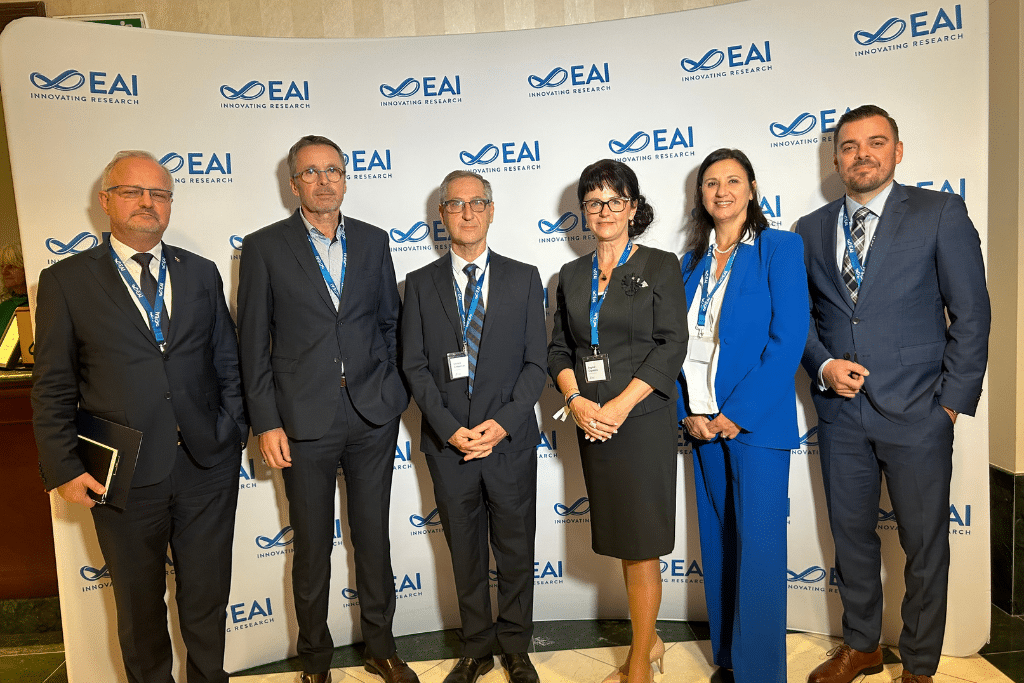
Q5: In your role as the Vice-Dean for Strategic Development, Projects, and Innovations at the Faculty of Management, Comenius University Bratislava, how do you see academia contributing to the collaborative efforts between academia, industry, and governmental representatives?
Academic institutions play a pivotal role in bridging the gap between theory and practice. By fostering collaborations with industry and engaging with governmental representatives, academia becomes a catalyst for meaningful change. These partnerships enable the translation of theoretical knowledge into practical applications, driving innovation and addressing real-world challenges.
Q6: Can you share your thoughts on the significance of connecting academia, industry, governmental representatives, ambassadors, and civil society, as highlighted in your role as one of the key summit organisers?
The collaboration between academia, industry, government, ambassadors, and civil society is crucial for holistic development. By bringing together diverse perspectives and expertise, we create a synergistic environment where ideas can flourish and translate into tangible solutions. This interdisciplinary approach not only enriches research but also ensures that innovations are relevant, sustainable, and have a positive impact on society.
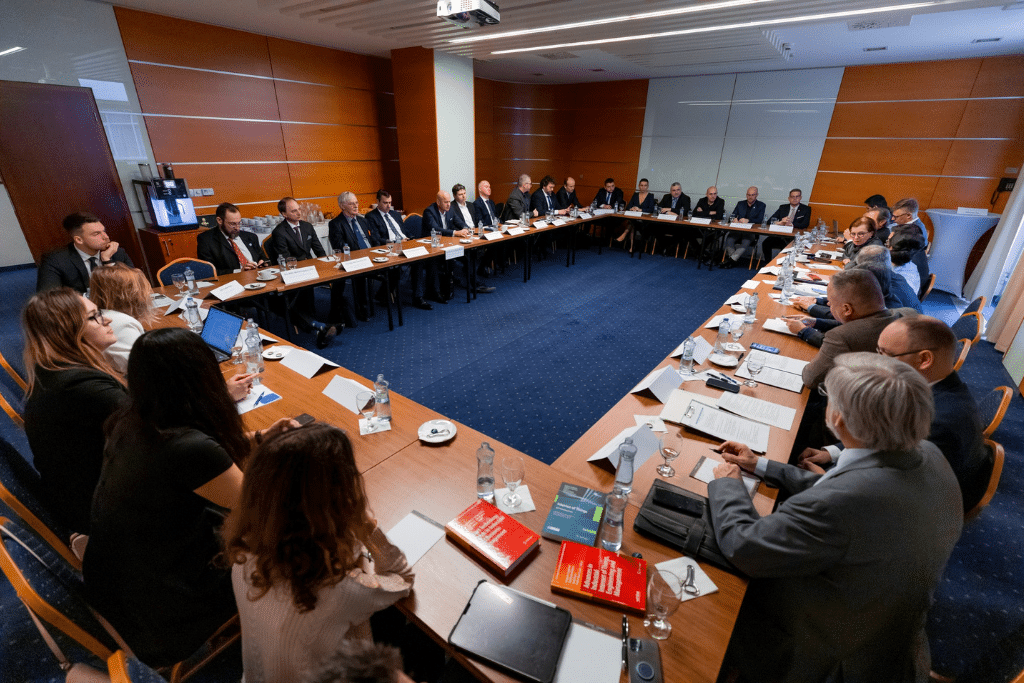
Q7: How do you personally see the smart life of the future?
From the outset of my nearly 30 years of active engagement in academia, my focus has gravitated towards the realm of smart cities. Through communication, organisational, and intercultural skills, coupled with experiences in international projects, whether as the principal investigator or collaborator, I have actively fostered collaborations with universities, industrial practices, research and innovation institutions, local communities, and embassies. The mentioned intentional approach has systematically led me towards establishing a global network on the subject. My intensive involvement in the smart city domain began in 2009 during the AUTOCLUSTERS project. The complexity and significance of this field intrigued me. The more deeply I delved into it, the more I felt a compelling desire to systematically dedicate myself to this area.
Smart cities pose an interdisciplinary challenge, a strength I embrace. My vision for the future centres on cultivating smart individuals – technologically adept, fostering happiness, motivation, and community. I see a future where technological advancements are seamlessly integrated into our daily lives, enhancing convenience, efficiency, and overall well-being. Smart technologies should empower informed, connected decision-makers. Happiness and motivation are key to smart living and fostering personal and professional growth. I envision ecosystems prioritising individual fulfilment and community satisfaction.
Furthermore, a sense of community is crucial in the smart life of the future. Connectivity across borders should strengthen local communities in smart cities. I envision smart cities where residents are actively engaged, collaborating on shared goals, and collectively contributing to the betterment of society. In summary, the future smart life prioritises cultivating smart, happy individuals in communities enriched by technology for enhanced quality of life.
Q8: Looking forward, what do you envision as the key drivers for innovation in the coming years, especially in the context of smart living?
The future of innovation, particularly in the realm of smart living, will be shaped by advancements in technology, increased collaboration, and a focus on sustainability. Artificial intelligence, IoT, and data-driven solutions will play pivotal roles. Moreover, fostering a culture of open communication and collaboration will be essential to address complex challenges and create solutions that enhance the quality of life for individuals and communities.
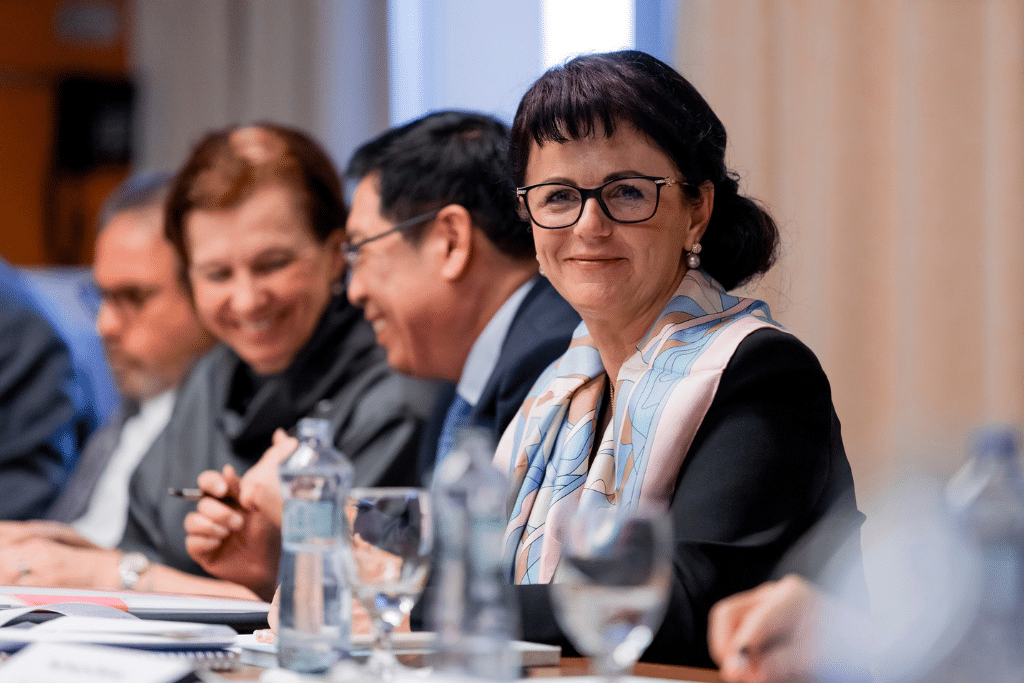
Q9: Innovations are the driving force of the society. Which were the latest smart technologies and trends presented at the Smart Life Summit 2023?
The Smart Life Summit 2023 showcased a diverse array of the latest smart technologies and trends, reflecting the cutting-edge innovations driving societal progress. Among the notable presentations, one that garnered significant attention and left a lasting impression was focused on the application of Artificial Intelligence (AI) for medical purposes.
AI for Medical Purposes: The intersection of AI and healthcare has become a frontier of innovation. The presentation delved into how AI is transforming the medical field, ranging from diagnostics to personalised treatment plans. The application of machine learning algorithms and data analytics in healthcare not only enhances the accuracy and speed of diagnoses but also holds the potential to revolutionise patient care. The topic resonated strongly with attendees, underlining the transformative impact of AI on the health sector.
Geothermal Energy: Another significant area of focus was geothermal energy. The summit delved into the latest developments and applications of geothermal technology, emphasising its role in sustainable energy solutions. Geothermal energy, being a renewable and environmentally friendly source, aligns with the broader goal of creating smart and eco-friendly cities.
Beyond these focal points, the summit addressed a plethora of other subjects, reflecting the interdisciplinary nature of the event, e.g. Energy Efficiency and Economic Trends and Development. In essence, the Smart Life Summit provided a comprehensive overview of the latest smart technologies and trends, covering diverse areas such as healthcare, energy, economics, and more. This diversity reflected the dynamic nature of innovation and its impact on various facets of society.
Q10: Prof. Cagáňová, you mentioned a competition specifically designed for PhD students. How important is involving young academics in the Smart Life Summit 2023 (Bright Young Minds)?
Involving young academics in the Smart Life Summit, particularly through initiatives like the “Young Bright Minds” competition, is of paramount importance. The significance lies in several key aspects that contribute to the overall success and impact of the summit: New Ideas and Innovation, Inspiration and Motivation, Networking Opportunities, Professional Development, Encouraging STEM (Science, Technology, Engineering, and Mathematics) Education, and Investing in the Next Generation.
To conclude, young academics bring fresh, innovative ideas to the Smart Life Summit 2023, fostering breakthroughs in various fields. Exposure to renowned speakers inspires them to pursue ambitious goals and contributes to knowledge and innovation. Engaging with professionals and peers at the summit offers invaluable networking opportunities, fostering collaboration and potential research partnerships. The event serves as a platform for their professional development, allowing them to present their work, receive feedback, and explore diverse methodologies. The “Young Bright Minds” competition encourages STEM education, recognising outstanding contributions and promoting a skilled workforce. Involving young academics is an investment in the future, ensuring a sustainable talent pipeline and contributing to continuous academic excellence at the Smart Life Summit.
Q11: In general, what is your opinion about the importance of organising such events? What benefits do they bring to the community?
Organising events like the Smart Life Summit 2023, as I mentioned above, is crucial for community building, knowledge exchange, and fostering innovation. These events serve as invaluable platforms for networking, creating connections, and encouraging collaboration among individuals from academia, industry, government, and various sectors. The emphasis on cutting-edge topics ensures participants gain insights into the latest trends, innovations, and research, making them well-equipped to address current challenges. The interdisciplinary nature of such events facilitates cross-sector collaboration, leading to innovative solutions that benefit the community. Attendees are inspired and motivated by engaging with experts, thought leaders, and visionaries, igniting a passion for meaningful contributions within their domains. Conferences and summits also offer educational opportunities for continuous learning and staying abreast of advancements in various fields. The growth and development of the community result from fostering an environment that encourages collaboration and knowledge-sharing, creating a resilient and dynamic community network.
Moreover, events like the summit contribute to a forward-looking perspective, helping the community anticipate changes, adapt to evolving trends, and actively shape the trajectory of technological and societal developments.
In summary, these events play a crucial role in community development, knowledge enhancement, and creating an innovative environment with a lasting impact on societal advancement.
About Prof. Dagmar Cagáňová
Prof. M.A. Dagmar Cagáňová, PhD, acts as a full professor in Economics and Management of Enterprise and as Vice-dean for Strategic Development, Projects and Innovations at the Faculty of Management, Comenius University Bratislava, Slovakia. At the same time, Prof. Cagáňová is the General Chairwoman of Summit Smart City 360°/Summit Smart Life, co-founder of the European Alliance for Innovation in Slovakia and the Advisory Board Representative of the ECEG’s ChemSkills/Blueprint project. She is an International Advisory Council Member of Danubius University, Management Committee Member of E-COST (European Collaboration in Science and Technology), the Executive Committee Member in Danubius Academic Consortium (Academic Network for Integral Innovation), as well as a Member of iATDi (International Association for Technological Development and Innovations), Vice-chairwoman of Cultural and Educational Grant Agency (Committee 3), Member of Accreditation Committee of the Ministry of Education, Science, Research and Sport of the Slovak Republic.
To date, prof. Cagáňová has published over 400 publications, seven scientific monographs, 17 papers in current content journals with IF, 89 papers in databases WOS and 131 in databases SCOPUS and has over 850 citations.
